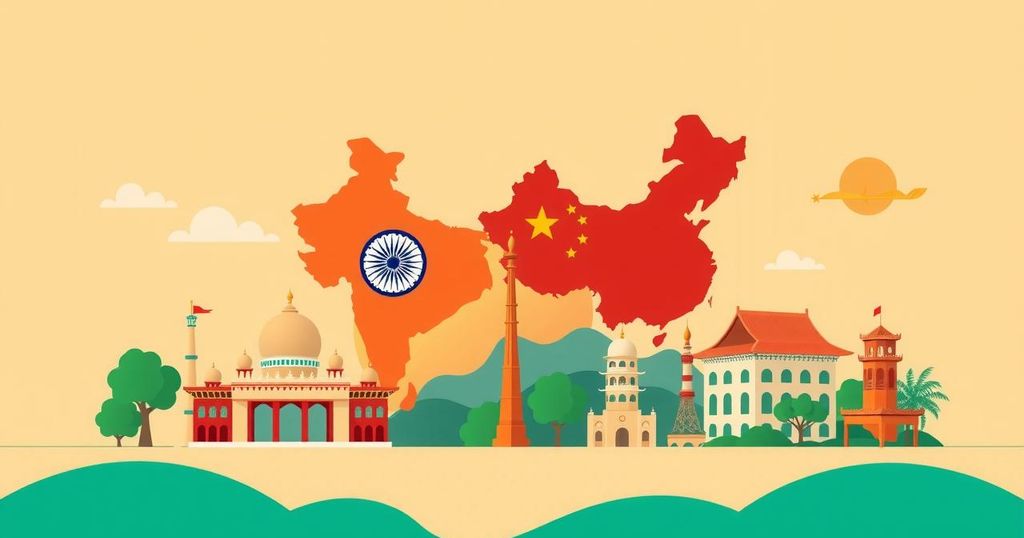US Tariffs Expected to Create Opportunities for India, NITI Aayog Affirms
NITI Aayog asserts that US tariffs will minimally affect India and may provide opportunities. Compared to major competitors, India is favorably positioned for trade growth. The upcoming bilateral trade agreement aims to significantly enhance trade by 2030.
The United States’ plan to implement reciprocal tariffs will not significantly affect India and may in fact present various opportunities, according to NITI Aayog Programme Director Pravakar Sahoo. He emphasized that in comparison to Mexico, China, and Canada, which collectively represent half of America’s imports, India is positioned favorably. Sahoo remarked, “We are looking at the data at a very dis-segregated level… these are preliminary results, but I can just give you the overview that we are not going to lose.”
Sahoo’s comments followed the release of NITI Aayog’s quarterly trade watch report, which included an analysis of the reciprocal tariff’s potential impact on India set to be elaborated on in the next edition. He noted that while primary competitors—Canada, Mexico, and China—face tariffs ranging from 20-25%, India’s position remains strong, as the “post-imposition of these tariffs on our competitors in the US market, we are much much better off.”
The US has already imposed a 25% import duty on steel and aluminum and proposed further tariffs on completely built vehicles and auto parts, effective from early April. President Trump has voiced intentions to introduce reciprocal tariffs on major trading partners, including India, citing high tariffs imposed on US goods. Meanwhile, a US official delegation has arrived for discussions regarding a bilateral trade agreement likely to be finalized shortly.
India and the US aim to complete the first phase of this agreement by the fall of 2025 and increase bilateral trade from over $190 billion to $500 billion by 2030. Following previous tariffs imposed by the US in 2018, China saw a decline in its share of US imports, allowing countries including Taiwan, Vietnam, Thailand, Mexico, and India to benefit. NITI Aayog member Arvind Virmani urged consideration of trade agreements with nations rich in manufacturing, foreign direct investment (FDI), and multinational corporations, highlighting the US, EU, Japan, UK, and South Korea as critical partners.
In summary, the anticipated US tariffs are unlikely to adversely impact India, but rather create avenues for growth in specific sectors. With favorable positioning against major competitors, India is optimistic about its trade dynamics moving forward. Furthermore, the ongoing negotiations for a bilateral trade agreement aim to bolster trade relations significantly by 2030.
Original Source: www.business-standard.com








Post Comment